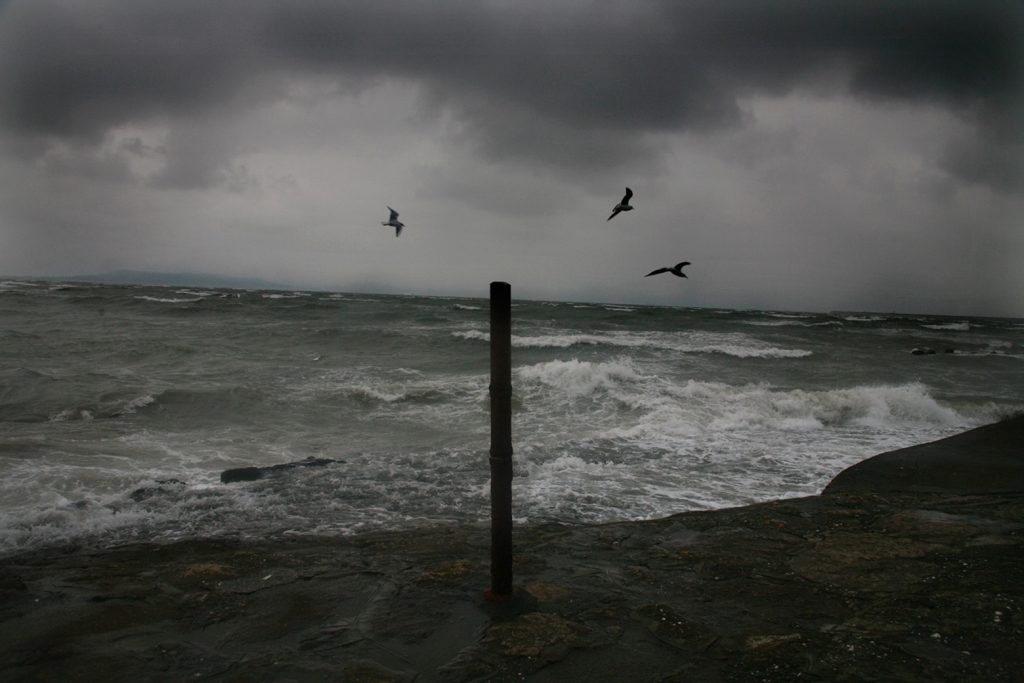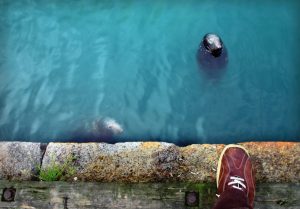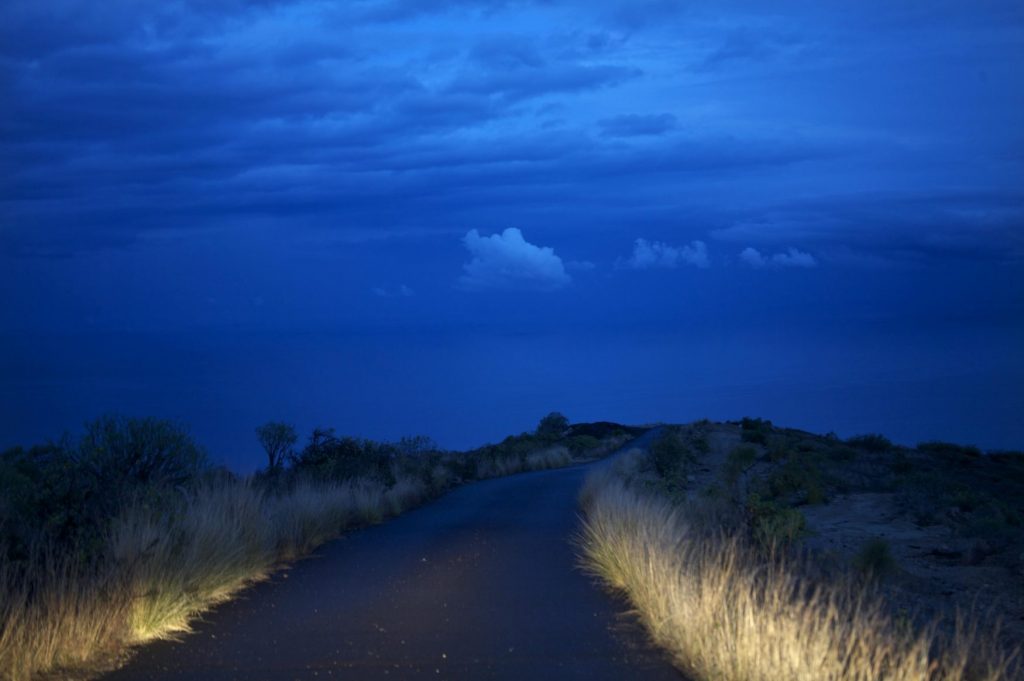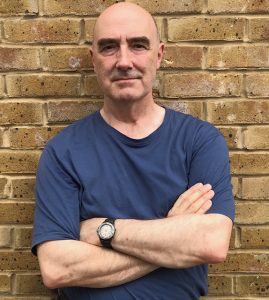MARK GRANIER reads from Ghostlight: New & Selected Poems
Throughout October, Trasna will focus on the Celtic festival of Samhain, known better to Americans as Halloween. The holiday originated in Ireland and celebrates that time of year when the veil between this world and the next grows thin, and life seems more mysterious.
This week we feature award-winning poet, photographer, and filmmaker, Mark Granier. In addition to select readings from his latest collection, Ghostlight: New & Selected Poems, is his film: “Docklands,” which won the Doolin Writers’ Weekend Film-Poem Competition in 2019. Mark and filmmaker Fiachra MacAllister also produced the haunting video for Peter Sirr’s poem “About Ghosts: Whoever You Were,” which was recently featured on Trasna.
Mark has published five books of poetry and has exhibited his photographs in major European art galleries. Here, his poems explore a mysterious 16th century dancing plague; the presence of those we can’t see; and the rhythm of history that runs through us.
Dancing Plague
There’s been a strange epidemic lately
Going amongst the folk – Strasbourg, Alsace, 1518
Where, who was the music?
Frau Troffea was the first. She danced for four days,
the insides of her clogs slippy with blood.
A strange thing, and maybe it meant little,
unlike the last touches of The Great
Pestilence; unlike leprosy, famine, the pox
or that foreigner, The English Sweat.
Where, who was the music?
Other folk followed, at any time up to a score,
hopping, twisting, kicking up dust that danced
mingling with the dust raised by onlooking crowds,
amongst these, maybe, a few doomed to discover
how it feels to be hustled by your own body,
arrested, taken away.
Where, who was the music?
We did as we were ordered: schemes, edicts,
management of the afflicted: ‘Flux in the blood’
might be danced out of the blood: guildhalls swept
into dancehalls, The Horse Fair displaced by a hammering
platform assembled quick as a scaffold: a stage
for proper music makers ––
Where, who was the music?
trumpets, fifes –– and hired dancers whose job
was to clasp the poor souls and spur them, spin them like tops
faster and faster, to out-dance, outquicken this thing
even as the old or weakened who couldn’t keep up
stumbled, sagged, wilted and flickered out, gone
in some stranger’s mechanical arms.
Where, who was the music?
No good. We did as we were ordered, searched
house to house, street to street, rounding up
wagonload after hopeless wagonload,
transported to the mountain shrine of Saint Vitus,
where the strict monks set them to fasting, praying (even dancing
in red devotional dancing shoes)
Where, who was the music?
until something, it seemed, finally shifted. God
heaved off His curse. The shriven came clopping back
cured. Miracles. Or had this thing simply rolled on,
a thunder storm knocking the mountains? In its wake,
over two hundred graves, our faith shaken
as the unsteady, seasick earth.
Where, and what is the music?
MARK GRANIER reads “Dancing Plague,” from GHOSTLIGHT: NEW & SELECTED POEMS

Vulture Bone Flute
–– 38,000 BC
Fitting to see the oldest airs
salvaged from a raptor –– the air
of its wing –– and there is music
in our bodies, drums and strings,
wind instruments fulfilling themselves
so blood and sweat sings
to surfaces, half-blinding those eyes
lost in the swing of a scythe,
a notched sword, the haulage
of hominid arms through foliage ––
music that runs like sap
back to the root
of our species jogging on the spot
wired to an iPhone –– chants, field hollers,
deafening wars, silences –– the body
bearing the mind away
with riffs, keys, tones, variations
on what’s in us and what will come
to blow through our bones.
MARK GRANIER reads “Vulture Bone Flute,” from GHOSTLIGHT: NEW & SELECTED POEMS
From Blackrock
Here’s to you, ghost father, alive or dead,
your surname’s reserved seat, your vast
library of the unsaid;
to your one image, slip of the past
in blurred grey and white;
a soldier, sitting with my mother,
your smile sleepy, hers bright
as the ghostlight blowing your cover;
to the curse or gift you bestow:
abstraction, my soft spot for absences;
cloudwatcher, seawatcher, open to the slow
shift of light, the waves’ always present tenses;
to the given, darkening, Dublin Bay almost black
except, nearby, where a wave splits a rock.
MARK GRANIER reads “From Blackrock,” from GHOSTLIGHT: NEW & SELECTED POEMS
Three Postcards From Mr Zed
- Seascape
The best thing about the sea is that
basically, it’s flat
and
there is no land.
- Night Gazing
The big dark is my thing.
Who, after all, would miss
what the deadlights promise
and never bring?
- Self Portrait
Set one mirror
staring into another,
unlock those cool walls
and you can fall
straight
down my throat.
MARK GRANIER reads “Three Postcards From Mr. Zed,” from THE SKY ROAD
“DOCKLANDS” a film-poem by Mark Granier and Fiachra MacAllister (2019)
Mark Granier is an award-winning Irish poet and photographer. He has published five collections of poetry, and his poems have appeared in many outlets, including The New Statesman, The TLS, Poetry Review, The Daily Poem and Verse Daily.
Granier’s photographs have been published by The Guardian and exhibited in a number of different shows and galleries, including the OXO Gallery in London and Royal Irish Academy Annual Exhibition in Dublin. His film-poem, Docklands, was a joint winner of the first prize in the Doolin Writers Festival in 2019.
Granier’s fifth poetry collection, Ghostlight: New & Selected Poems, was published by Salmon Poetry in 2017.
https://www.salmonpoetry.com/details.php?ID=432&a=56
All photographs are by Mark Granier
6 Responses to MARK GRANIER reads from Ghostlight: New & Selected Poems
Margaret O’Brien says:October 9, 2020 at 3:56 pmMark, these are wonderful. I look forward to seeing more of your work!
Jeannie Judge says:October 9, 2020 at 9:04 pmMark Granier’s poems celebrate the harmony of creation from the beginning of time to the present. I am drawn especially to “Vulture Bone Flute,” which moves from the instinctive motion of the raptor to the music of the ear-budded runner. The very act of being alive is an art form; every body is an instrument.
Jeannie Judge says:October 9, 2020 at 9:05 pmPS. The readings are exquisite!
Mark Granier says:October 11, 2020 at 5:57 amThanks Margaret and Jeannie, I’m glad the poems connected.
PaulM says:October 11, 2020 at 8:13 am“Docklands” is beautiful. Thanks for this.
Enda Wyley says:October 12, 2020 at 3:19 amDelighted that your work features in Trasna, Mark. Wonderful to read the new timely poems too.
Well done to all the Trasna team for gathering such an interesting body of work together.



